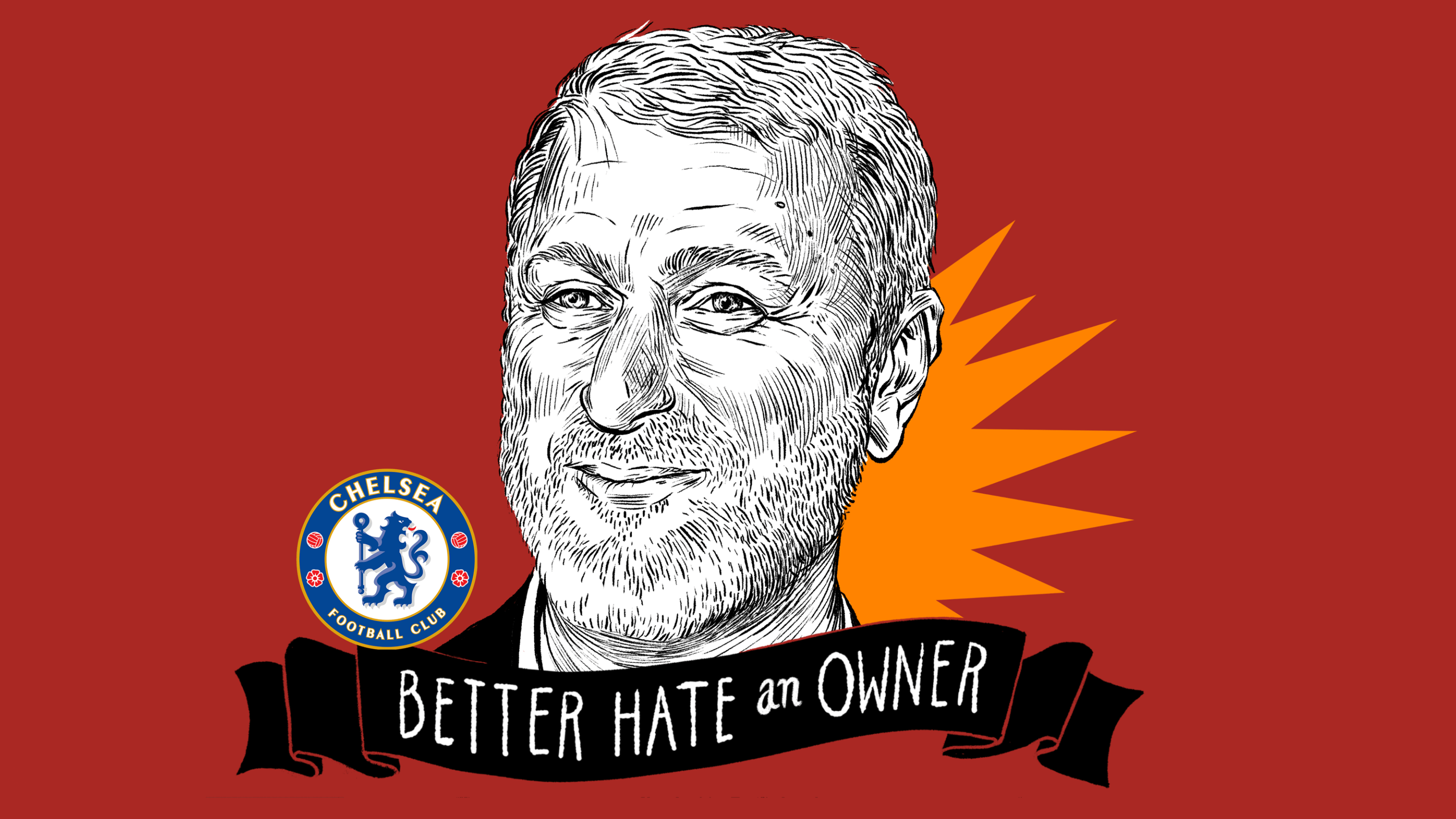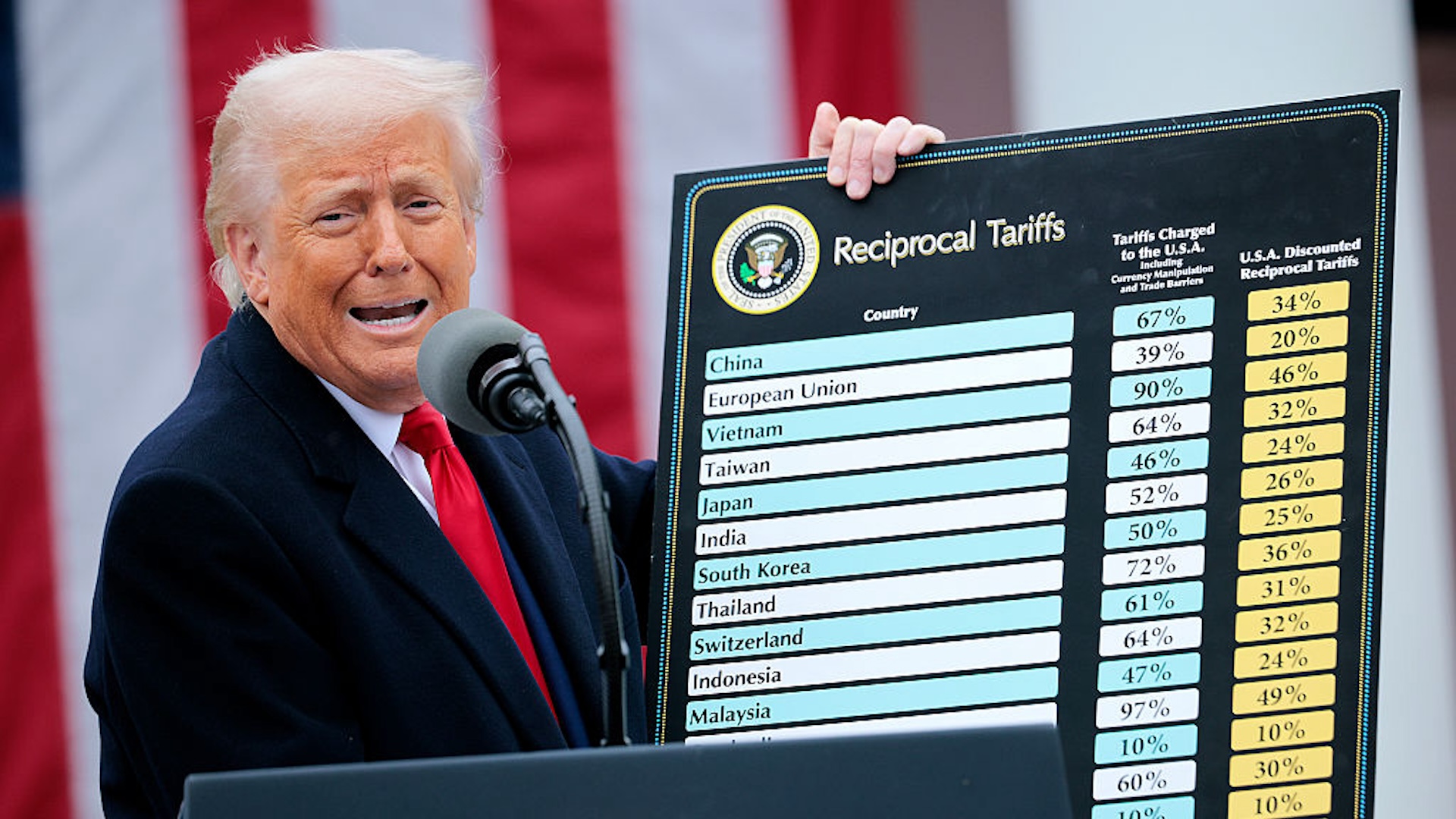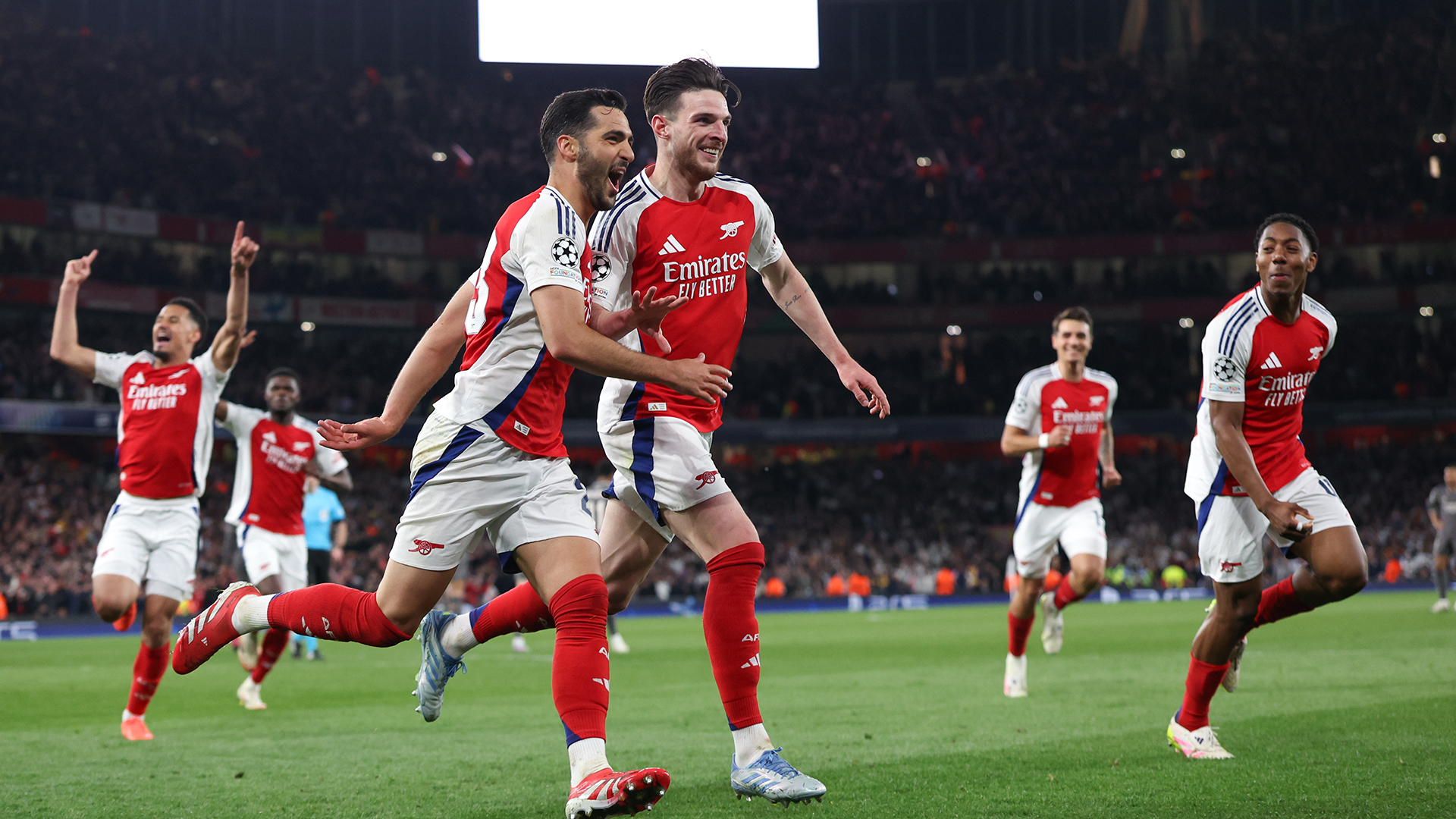Welcome to Better Hate An Owner, a recurring feature in which we learn more about all those awful old people who get to hold the trophy first at championship ceremonies. Today’s entry is about Chelsea owner Roman Abramovich.
How much of his soul did he lose in making his money?
It has to be absolutely every last shred. The long-time owner of Chelsea Football Club successfully transitioned from Boris Yeltsin-era oligarch to Vladimir Putin-era oligarch. He has been plundering Russian state assets for decades.
Is he a fail-child?
As a child in the former USSR, Abramovich’s parents died in horrific ways, in quick succession, before he turned three. According to a 2004 biography, The Billionaire From Nowhere, his mother died from blood-poisoning after an unsafe abortion and his father was crushed by a construction-site crane. So no, he's not a fail-child.
Does he own a ridiculous boat?
One of the longest in the world! The 500 foot yacht Eclipse allegedly has both a beauty parlor and “a missile detection system.”
What are his political affiliations?
Abramovich has no grand worldview. At this point, with billions in the bank, he’s just trying to survive. Maybe call that Putinism?
Here’s my No. 1 favorite thing about Roman Abramovich: He is currently barred from living in the country in which the club he owns is located. His UK investor visa expired in April of 2018 and hasn't been renewed since. Last fall Abramovich attended his first Chelsea match in nearly two years—in the southern Russian city of Krasnodar. Chelsea beat Krasnodar FC, 4–0.
There was a time when England's capital was so hospitable to Russian expats with mysteriously acquired fortunes that it got the nickname Londongrad. For years the British Home Office handed out “investor visas” to practically anyone willing and able to put £2 million into the British economy. (Roughly 700 other Russian nationals got the same deal as Abramovich.) The chill vibes stopped in 2018, with the poisoning of Russian double-agent Sergei Skripal and his daughter in the small town of Salisbury. Soon after, the UK’s National Crime Agency began targeting oligarchs like Abramovich with a legal tool called an UWO: an unexplained wealth order.
Since leaving London, it’s been a bit of a whirlwind tour for Abramovich. He tried to move near the Swiss ski town Verbier but was rejected after Switzerland’s Fedpol communicated to the country’s immigration authorities that Abramovich carries a “suspicion of money laundering,” has “presumed contact with criminal organizations," and owns “assets at least partially of illegal origin."
Around the same time Abramovich, who is Jewish, acquired Israeli citizenship under the country’s law of return. He went first to the Israeli embassy in Moscow where, according to Israel’s interior ministry, he “arrived ... like any other person,” “filed a request to receive an immigration permit,” and “was indeed found eligible.” He later flew his Gulfstream G650 to Tel Aviv, where he officially became then the richest man in Israel. The whole process was so comically fast that it gave credence to reports that Abramovich had actually secretly been granted citizenship years ago.
According to Israeli newspaper Haaretz, Abramovich is one of “a number” of Jewish-Russian oligarchs—“constantly worried of incurring President Vladimir Putin’s displeasure” and always seeking “an insurance policy for a rainy day”—who long ago worked out a citizenship-for-cash deal with the interior ministry. Allegedly, the minimum was a million-dollar donation to an Israeli organization.
Coincidentally or otherwise, leaked bank documents known as the FinCEN Files revealed that, for over a decade, Abramovich-controlled companies secretly funneled money to a right-wing organization, Elad, which has spent decades turning large parts of East Jerusalem into a Disneyfied quasi-historical Jewish tourist attraction. From BBC News Arabic: “Within just 30 years, with the support of Israel’s richest man ... the Palestinian neighborhood of Silwan has become the City of David.” The Abramovich-controlled companies have given Elad a mind-boggling $102 million.
Meanwhile, Israel these days operates under a whatever the exact opposite of an unexplained wealth order is. Under a 2008 law, a new Israeli citizen doesn’t have to answer any questions about assets or earnings from outside of the country for 10 years. “It should be clear by now that the Law of Return is no longer fit for purpose,” Haaretz argued in an opinion piece around the time Abramovich got his passport. “It can be too easily abused to transform Israel in to a bolthole for tax-evaders, sex offenders and worse.”
Since buying Chelsea in 2003, Abramovich has spent indiscriminately and Chelsea has racked up the trophies. Seventeen of them, to be exact, at an estimated cost to Abramovich of £2 billion. Getting booted from the country hasn’t changed anything. The money is still being spent, with great force and scattershot success. In 2019 Chelsea bought Christian Pulisic for £58 million, a steal for an American Hero; in 2020 they spent over £200 million on a group of players including German striker Timo Werner, who currently—beautifully, horrifically—can’t stop missing sitters.
All that recent investment paid off royally last weekend, when the Blues capped a topsy-turvy but ultimately successful season by beating Manchester City in the Champions League final. Abramovich was in attendance for the big game in Porto, Portugal, making it his first time watching his team from a seat in the stadium since the match in Krasnodar. When Abramovich made his way onto the pitch after the victory and congratulated his now-triumphant manager, Thomas Tuchel, it was the pair's first ever in-person meeting.
That their club’s owner is involved in so much dubious shit that he can’t legally live in the same country as them is seen by the Chelsea faithful less as an embarrassment and more as a problem to strategize around. In 2019, one football writer suggested Abramovich should try to temporarily waltz back on a tourist visa to cheer everyone up: “His absence has been unsettling. His mere presence might serve to lift the mood.”
Many (most?) Premier League owners are rapacious sociopaths. Most Premier League fans are aware of this. At least until the Super League debacle, it just wasn’t something that was actively, regularly considered. Abramovich’s exile is interesting in that it makes it impossible to ignore reality. The whole point of sportswashing is it lets you pretend you’re something you’re not. And it’s a lot harder to do that when you’re spending your time not at Stamford Bridge but at Krasnodar Stadium.
Not renewing Abramovich’s visa is a good step; more should be done. Speaking to the EU last year, the now-imprisoned Russian dissident Alexei Navalny called for sanctions on Russian oligarchs directly: “Just tell … Mr Abramovich … ‘please, take your yachts [out of Europe] and get them ... to the nice harbours of Belarus Republic.’” While we’re at it, we should call for the U.S. to institute sanctions that would bar Abramovich from midtown Manhattan. According to Bloomberg, “When he’s in New York, [Abramovich] has been known to watch Chelsea matches at Legends,” the sports bar on 33rd Street.
When Russia is demonized in American media for “meddling” and “interference,” it’s easy to forget something simple: Those most fucked by the way the Kremlin does business are the Russians. OK: so how much has Roman Abramovich stolen from the Russian people? His net worth is estimated at $19 billion, but the truth is it’s impossible to say.
If we skip over the classic humble origins (he imported rubber ducks!), the story of Abramovich The Mogul starts in the mid-90s, when he sidled his way next to then-president Boris Yeltsin and worked connections to acquire a controlling interest in a Russian oil giant, Sibneft. He later developed massive holdings in nickel, steel, palladium, and, famously, aluminum in the era of the “aluminum wars” during which, by his own estimation in a London court hearing, “every three days someone was being murdered.” He’s paid—again, by his own estimation—over a billion dollars in krysha, or protection bribes, to well-connected Kremlin sources.
When Putin succeeded Yeltsin as head of state in 2000, Abramovich gamely transferred his allegiances. According to Catherine Belton’s exhaustive new book Putin’s People, Abramovich was a “financial bridge between the Yeltsin family and Putin’s men.” While the intricacies of the deals that Belton traces are head-spinning, fundamentally, the through line is the same: Putin allows Abramovich to cheaply acquire billions in state assets; in exchange, Abramovich uses that money however Putin wants him to. Basically, in every way but legally, it is Putin’s money.
A fun story: From 2001 to 2008, Abramovich served as governor of Chukotka, a region in far-eastern Russia. According to Belton, it was all on Putin’s orders: “Putin wanted the fortune Abramovich had made ... and the laws of the time made it easier to jail officials than businessmen.” Abramovich spent his exile fashioning himself into a local god, gifting the area with a bowling alley and an ice rink.
Which brings us back to Chelsea. According to Belton’s sources, it was Putin who instructed Abramovich to buy the club. Partially, the theory goes, that was to build connections in world football and curry favor with FIFA. (Again, coincidentally or otherwise, Russia did finesse its way into hosting the 2018 World Cup.) Partially, it was also to build Abramovich up as “the acceptable face of Russian business.” As one Russian businessman told Belton, “Putin likes people like Abramovich ... to travel the world and tell people he’s not such a crocodile.”
For what it’s worth, Abramovich is currently suing the publishers of Putin’s People, specifically over the book’s Chelsea claims. But there’s also a countervailing line of thinking, that the reason Abramovich bought Chelsea in the first place was to make himself prominent enough so Putin couldn't easily turn on him.
And ultimately, if there is anything sympathetic about Abramovich, it’s this: the plain, chilling fact that his life is not his own. The yacht is real; Chelsea is real; the St. Barts New Year’s Eve parties with one Beatle and all of The Killers are real. But the money isn’t really real. Paradoxically, it’s a small, conscribed existence. A life of unimaginable riches, in the service of a kleptocracy. Abramovich orbits the Kremlin. For now, apparently, he does so correctly. There’s no reason to suspect he’ll end up like Nikolai Glushov, the Russian businessman found strangled in his London home in 2018, possibly by a third party who wanted the death to look like a suicide. Abramovich knows as long as he doesn’t step out of line, he has nothing at all to fear.






